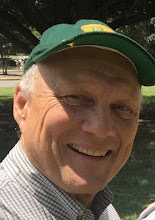What 9-11 Means to Me
By David E. Crosby, Pastor
First Baptist New Orleans
September 11, 2009
Three months after the disaster we stood in line for hours to view the wreckage of the Twin Towers. A CNN crew happened to be on site, and my wife and I were interviewed about why we came and what we hoped to learn. That 60-second clip of our comments was aired repeatedly around the world for several days.
Thousands of people died that day as a result of misguided religious zealotry. I felt a need to stand at the site of their deaths to cry out to God and to express in some small way my sorrow for their loss and my solidarity with friends and family members who were grieving.
The Apostle Paul commented on his own murderous religious bent by highlighting it as an illustration of zeal: “as for zeal, persecuting the church” (Philippians 3:6). Later he conceded that his own detractors “are zealous for God, but their zeal is not based on knowledge” (Romans 10:2).
Zeal is often not based on knowledge but on fear, insecurity, ignorance, flawed cultural and traditional norms, and twisted interpretations of the sacred texts.
9-11 is but one horrific illustration of how religion gets sick. The sickness of 9-11 is not the zeal but the murder. The wholesale slaughter of noncombatants in any war is forbidden by the individual conscience as well as the world religious systems. Hundreds of people from around the world became that day eight years ago, not collateral damage, but targets for destruction.
Any religious thinking which approves and encourages such tactics and behavior is a blight on the planet. We simply cannot continue the awful legacy of settling religious disputes and advancing religious causes through violence.
You may argue that 9-11 is not an illustration of “religious disputes.” I would agree. It is not simply religious disputation that precipitated this disaster. But in the minds of many Muslims as well as Christians, we are waging Holy War in Iraq and Afghanistan and the many other places where Christians and Muslims are perpetrating violence upon each other. Nineteen suicide bombers died on 9-11, and they would declare with one voice that they did this in the name of Allah.
Protection of people and property requires the bearing of arms. That is a sad truth. The power of the sword is given to the mayor, the governor, the president—our elected and legitimate governmental authorities. They wield that sword because evil people must be restrained. They should always take up the sword with a great sense of the final judgment when they will give their account unto God.
Individuals may at times take up arms to protect their person and property with a response proportionate to the threat.
But our faith in Christ does not call us to take up arms to advance Christianity or fight other religions. Our faith demands that we lay the weapons down. The sword—any weapon—is too weak to accomplish what Christ intends to do--changing the hearts of people. That cannot be accomplished by coercion, only persuasion.
So the followers of Jesus do as Christ did. We wield the sword of the Spirit, the Word of God. We fight our battles with love and good deeds, with faith and self-sacrifice. At our best, we refuse to use the power of government to advance our religion. We know that such advancement is illusory, that by using government to advance Christianity we are polluting both the true nature of the church and the true purpose of the government.
9-11 is a day when I remember the limitations of weaponry. I give thanks for a Savior who willingly put up the swords and then laid down his life. By such wisdom, faith, and sacrifice, Jesus demonstrated the true nature of faith in God, paid the debt for all our misguided zeal, liberated us from the grip of darkness and destruction, and changed the course of human history.
Now it is our turn to change the apparent course of human history: to insist that government limit its scope to the temporal concerns of humanity, to insist that our faith in Christ (and other faiths as well) cannot and should not be advanced by coercive means, to demonstrate our faith through love and self-sacrifice, and to lay down our lives that others may know the Savior who alone can rescue the wayward heart.
Friday, September 11, 2009
Subscribe to:
Post Comments (Atom)




1 comment:
Thank you for your insights.
Gustav Niebuhr commented in his book "Beyond Tolerance" that, in his assessment, religions don't cause wars but they certainly do provide fuel for them. He also noted that, for those who think religion is a source of evil, religion is not going away. The answer is for people of faith to come together to dialogue, to understand and to learn. The point is not conversion. It isn't to create a universal civic religion. It's to build relationships on the basis of that which is shared so that we can respect our differences and not let fear of the unknown overcome us.
Post a Comment